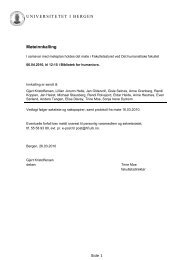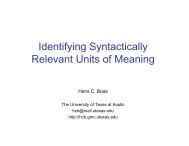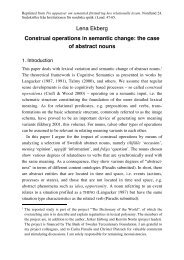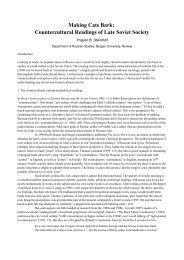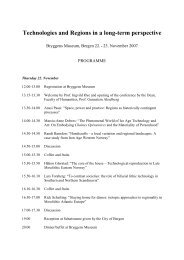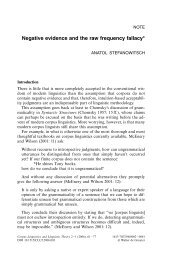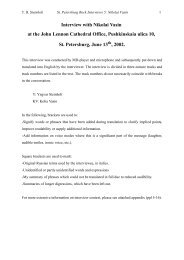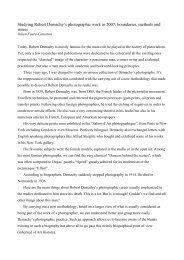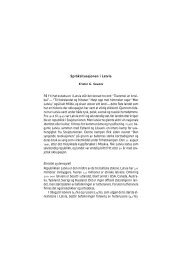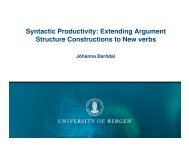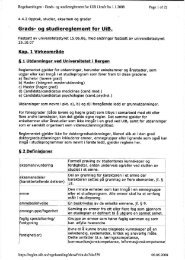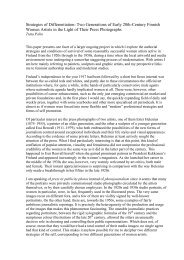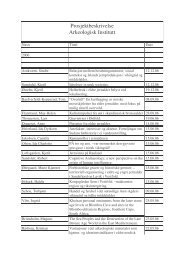THE BOOK OF POEMS IN TWENTIETH-CENTURY ... - TopReferat
THE BOOK OF POEMS IN TWENTIETH-CENTURY ... - TopReferat
THE BOOK OF POEMS IN TWENTIETH-CENTURY ... - TopReferat
Create successful ePaper yourself
Turn your PDF publications into a flip-book with our unique Google optimized e-Paper software.
"Дом"<br />
Another hopeful poem incorporated into the 1921 edition of Путем зерна is the<br />
1919-1920 blank verse narrative "Дом." While focused on an image of destruction and<br />
decay (a house destroyed after the revolution), the poem, like "Вариация," opens<br />
outward, suggesting, in the end, the potential for rebirth. Informed by both the title poem<br />
and "Ручей," "Дом" serves as a point of transition from the more personal, questioning<br />
journey of the first editions of Путем зерна to the more confident, epic statement of the<br />
final version. 74<br />
The poem opens with a description of the ruined house. The wood of the upper<br />
story has been torn down for fuel, leaving only the "crude shell" (грубый остов) of the<br />
stone base. This skeleton is defined by its negative spaces—its emptinesses. The empty<br />
spaces of the windows (пролеты широких окон), not the still present outlines or frames,<br />
are clearly drawn (lines 7-8). Even larger gaps—perhaps the holes where doors used to<br />
stand—lead the traveler who visits the house from one emptiness into another (lines 29-<br />
30). The rooms that used to house families now contain only heaps of trash that reek of<br />
rancid cold (lines 9-10).<br />
This bleak vision of emptiness is strangely tempered by the calm voice of the<br />
speaker. He describes his frequent evening visits to the house as restful (lines 3-4). He<br />
balances the negative images of destruction and decay with a positive description of the<br />
sky and green trees of the courtyard rising up out of the ruins (lines 4-6). While the<br />
74 Michael Wachtel has discussed this poem in the context of the Russian blank verse tradition. He does<br />
not, however, consider the context of the book which contains it and as a result describes the poem as<br />
"unremittingly bleak." He associates the water imagery of the poem with the apocalyptic imagery of a<br />
destructive flood, rather than seeing it as a symbol of life and spiritual energy, a consistent feature of water<br />
in Путем зерна (see, for example, my earlier discussion of "Ручей.") Michael Wachtel, The Development<br />
of Russian Verse: Meter and its Meanings (Cambridge: Cambridge University Press, 1998), 101-3. By<br />
reading "Дом" in the context of the entire book, specifically the context of the structuring title poem, I will<br />
try to show how the poem in fact acts as a hopeful link in the cycle of death and rebirth.<br />
51



